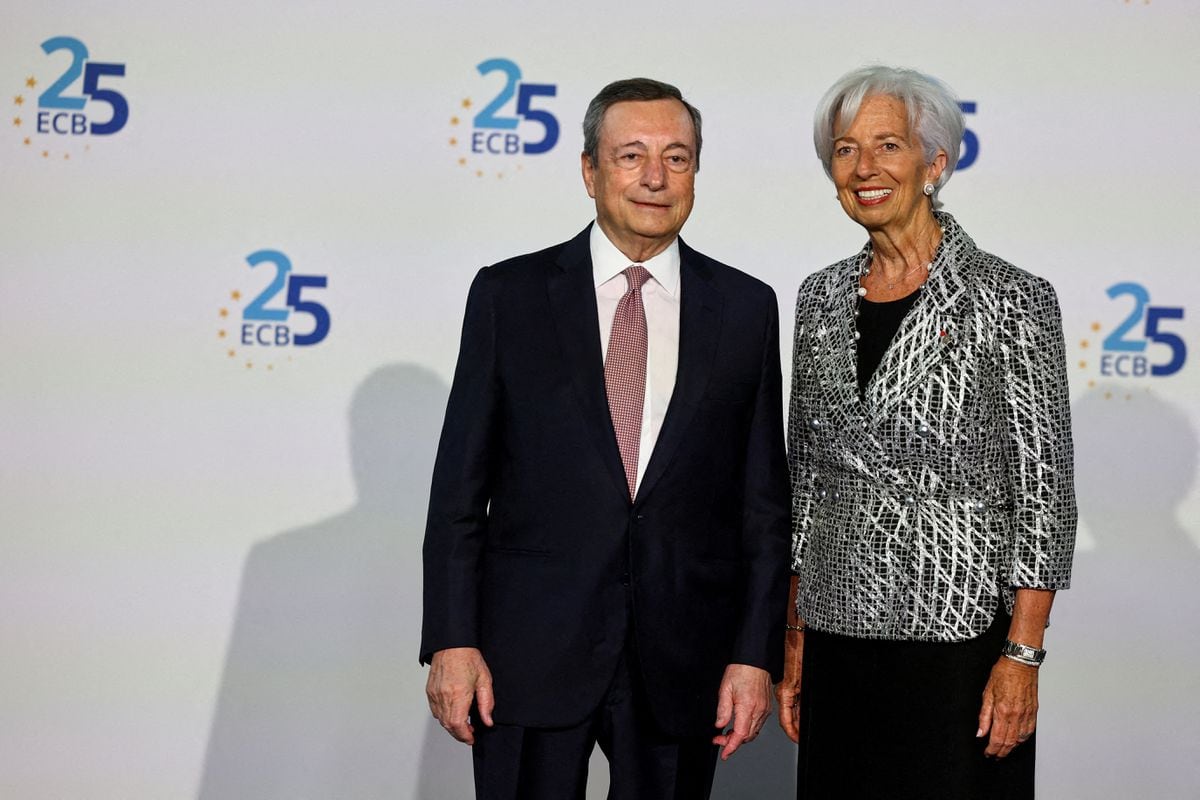A group of former central bankers from Germany, France, Austria and the Netherlands expects the monetary policy of the European Central Bank and its outgoing President Mario Draghi. "As former central bankers and as European citizens, the ECB's ongoing crisis mode will be watched with growing concern," the authors write in their "ECB Memorandum on Monetary Policy".
The ranks of the signatories are prominent: they include the two former ECB chief economists Otmar Issing and Jürgen Stark, ex-Bundesbank boss Helmut Schlesinger and Nout Welling, former head of the Dutch central bank. Also Christian Noyer and Jacques de Larosière, both former chiefs of the Banque de France, are among them.
The authors belong more to the camp of the so-called monetary hawks, which always drives the fear of higher inflation. It is an attitude that traditionally shapes the Bundesbank and the Dutch Central Bank. For a long time, the Banque de France had a reputation for pursuing a softer line.
The unspoken accusation that Draghi is helping Italy
The signers of the memorandum strongly criticize the fact that the ECB wants to re-launch soon its program for the purchase of government bonds. This measure will have little positive impact on economic growth. "On the contrary, it is suspected that the intention behind this is to protect heavily indebted governments from a rise in interest rates," the text says.
Unspoken resonates with the accusation that Italian Draghi wants to make the government of his home country possible to accept cheap loans. "From an economic point of view, the ECB has already crossed the border to finance state budgets," lament the ex-central bankers. That is forbidden according to the European contracts.
Draghi has been at the helm of the ECB since 2011 and leaves office as per contract at the end of October. His successor will be the former head of the International Monetary Fund (IMF), Christine Lagarde.
During his tenure, Draghi drastically reduced the key interest rates at which banks can borrow money from the ECB to zero. With several programs for the purchase of government bonds, he also tried to combat the euro crisis and to drive the economy in the monetary union again.
The most recent ECB Council meeting in early September was an open dispute over how to proceed. In the end, Draghi prevailed and announced that the central bank from November monthly for 20 billion euros bonds from states and companies and Pfandbriefe will buy. But several council members did not want to follow him on this course - including the current Bundesbank President Jens Weidmann and the German ECB director Sabine Lautenschläger. She announced shortly thereafter their premature retreat.
"Zombification" of the economy
With the memorandum, the internal opponents of the Draghi course now get support. The signatories of the text accuse Draghi of his policies leading to a far-reaching "zombification" of the economy. Low interest rates artificially kept weak banks and companies on the market. Interest rates would have lost their governance function and the risks to financial stability had increased.
The longer the ultra-loose monetary policy, the greater the danger of a relapse into the crisis. The low interest rates tempted investors to take higher risks in the search for returns, it says in the memorandum. This artificially inflates asset prices, with the risk of a sudden market correction or even a deep crisis. "If a major crisis breaks out, it will reach dimensions quite different from what we have seen so far," warn the authors. The ECB is threatened to lose control of how much money they are making.
Signatories to the memorandum are also worried that the ECB will ease its inflation target, which has been "below, but close to, two percent" - and has been undercut for years. Draghi's opponents now suspect that the ECB will probably allow higher inflation rates over the years, because the values previously had been permanently below two percent. "How does the ECB want to persuade the public and the markets in the future, after years of unsuccessful attempts to raise prices, that they will be able to stabilize inflation at a certain level?" The authors say.


/cloudfront-eu-central-1.images.arcpublishing.com/prisa/C3LDLHDAXBBCFCHWBPELHN64FU.jpg)






